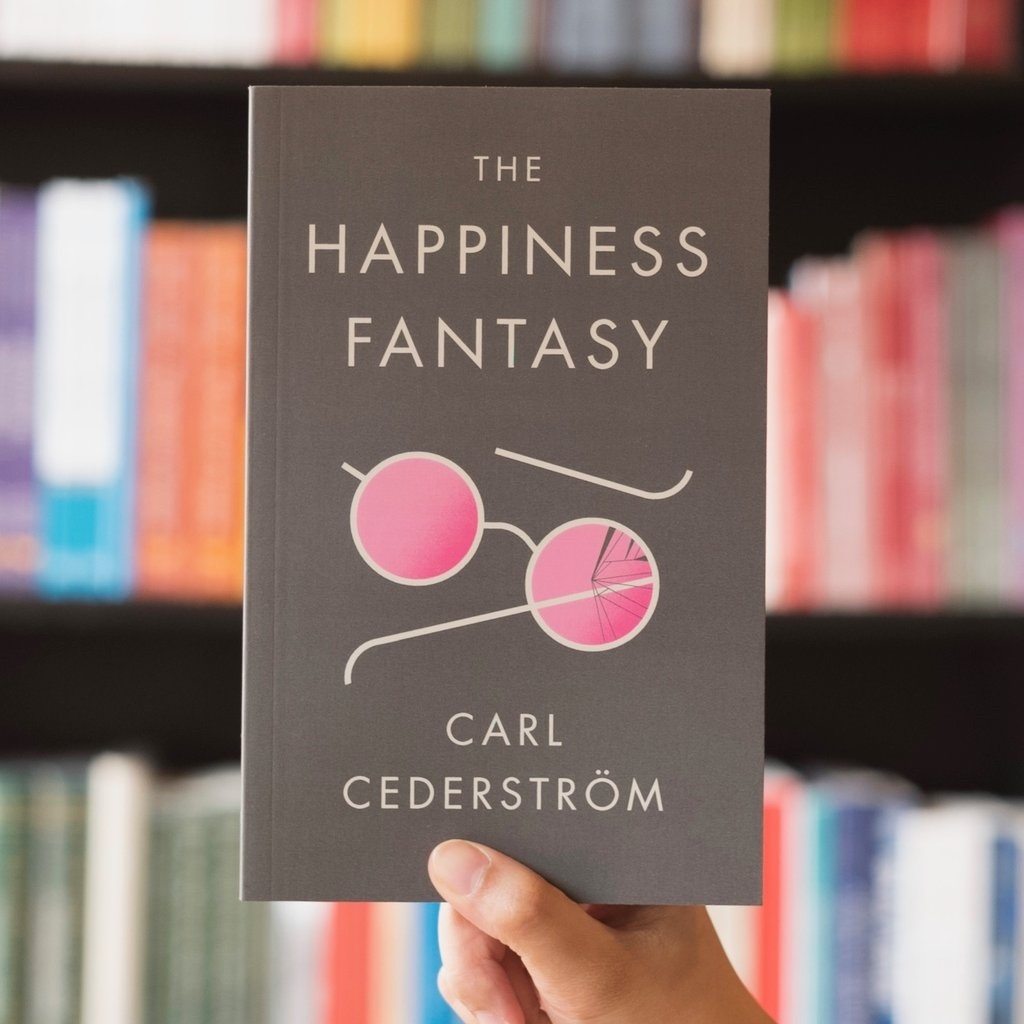Book review: ‘The Happiness Fantasy’ by Carl Cederström

Book review ‘The Happiness Fantasy’ (by Carl Cederström) – 2018
‘I need a little bit of happiness, yeah.’
(Jonathan Jeremiah)
The Happiness Fantasy, first published in 2018 by Polity Press (ISBN 9781509523818; the title in Dutch is: Ons geluksideaal) is written by Carl Cederström. He is an associate professor of organization studies at Stockholm Business School. In his research he focusses on Lacanian psychoanalysis, philosophy, politics and work. The author is co-writer of The Wellness Syndrome and Desperately Seeking Self-Improvement. Books also about the contemporary obsession with health and happiness.
With a critical and sometimes tongue in cheek tone Carl Cederström takes the reader from the young Wilhelm Reich to the Trumpusconi’s of this time to lecture about the fantasy of happiness. A warming up: https://www.youtube.com/watch?v=l1lhN0_DYsY
How does this book relate to Core Energetics?
The happiness Fantasy starts with Reich –one of the ancestors of core energetics– who links it to authenticity and sexuality (‘natural and sexual happiness’) in opposition to suppression and obedience. A whole chapter (‘In Bed with Wilhelm Reich’) is devoted to his life and work. Reich had a ‘vision of collective happiness, which he viewed as a logical conclusion of genital revolution’. According to Cederström ‘this was Reich’s happiness fantasy’.
In the 1960s self-transformation training centers take over Reich’s ideas to get richer also materially and professionally. Later training programs like est (Erhard Seminar Training) and Landmark Forum promise their participants: you have a choice; there are no victims. It is all about: ‘Me, myself, I.’
In the 1970s and 1980s this ‘notion of the good life’ integrates more and more into the corporate world. Being free and authentic (‘just be yourself’) is a way of selling yourself to and on the market. ‘Happiness (has become) an obligation that workers need to express and experience, even in places and situations where happiness seems to be remote.’
Carl Cederström gets to the conclusion that ‘it is no small irony to note that Reich’s fantasy of happiness no longer stands in opposition to power and domination, but is used as a way of exercising power and domination.’ He claims that ‘the happiness fantasy no longer enlarges but narrows human possibilities and that ‘we need to re-imagine’ the happiness fantasy.’ A happiness that is more based on empathy than selfishness. Not an individualistic notion, but a collective one, that is grounded on values like ‘love, kindness and solidarity’.
For a lecture by Carl Cederström about his book: https://www.youtube.com/watch?v=zwVYzZPw-Ws&t=223s
Reasons to read this book by Core Energetic Therapists
What do we promise our clients in the area of happiness and are we aware of the roots and reality of our hypotheses about happiness? The Happiness Fantasy helps you as a therapist to reflect on your mission and method in your work with clients. As a professional you are obliged to know on what shoulders you stand and where this shoulders are grounded in.
The author of this book wants to break with a looking through rose-coloured spectacles – as the cover of the book depicts– on the present-day conception of happiness as being authentic in life and especially in work. Happiness as the new norm. If you are not happy, you are doing something terrible wrong. You have a choice and foremost happiness has market value. Why we help clients become happier (more vitality and energy) in life and work by letting grow self-consciousness and inner power?
Martin Buber, the religious thinker and philosopher, gives an answer to this question in his The Way of Man: ‘To start with yourself, but not to end with yourself (…) to be yourself, but not self-involved (…) use your inner power for your task in the world.’
The Happiness Fantasy makes the same point: taking care of your own happiness and bring it home to your people.
‘I’m going home, where my people live, I need a little bit of happiness, yeah.’
Conclusion and advice for our work as Core Energetic Therapists?
Just read this book and let it inspire your life and work and bring your inspiration ‘home to your people’. While working on this review I happen to see a recent speech of president Barack Obama on the Five-Year Anniversary of My Brother’s Keeper Alliance (which ‘address persistent opportunity gaps facing boys and young men of color and to ensure all youth can reach their full potential’) in Oakland USA on February 18, 2019. He actually phrases very precise what we have to do as a person and a professional in this selfie era:
‘I didn’t grow up to become the person I am until I was less focused on me and I was more focused on how could I be useful, who could I help. Because the amazing thing is, when you help somebody, when you’re a positive influence on somebody, when you are working hard on behalf of somebody and you see that impact, that gives you confidence.’ See the whole speech: https://www.youtube.com/watch?v=c_z0h9mTefY
About the writer of this review
Jan-Willem de Goeij (1950) is a social, mental health and body-oriented psychologist, and core energetic therapist. In his work as member of the Core Science Foundation he loves to learn from the past and present of our profession to open the way for the emerging future of our beautiful profession.
February 28, 2019
